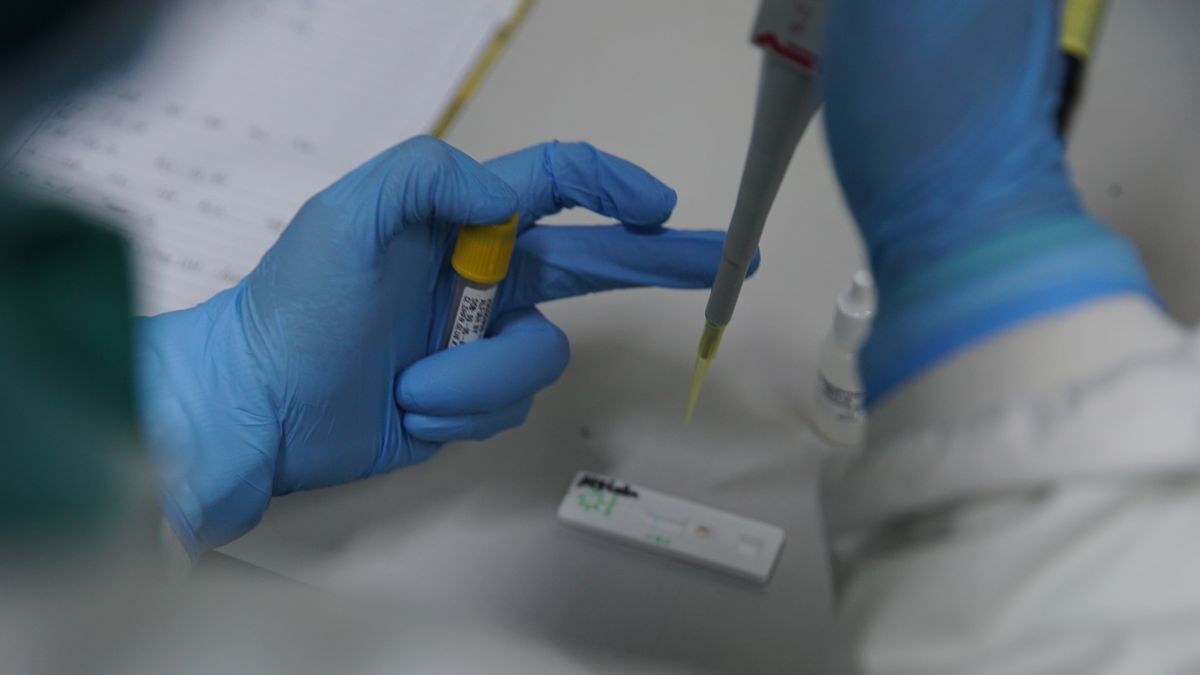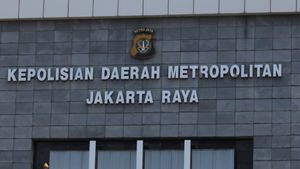JAKARTA - Minister of Health Budi Gunadi Sadikin said that the early detection of the importation of the new variant of COVID-19 Omicron (B.1.1.529) in the country was carried out through the S-gene target failure (SGTF) method.
"Omicron is one of the mutations in the S spike (crown virus) that can be identified by PCR. There is a method called SGTF. So if we use PCR reagents, it is not detected or the term is target failure, but the other gene is positive, it's most likely Omicron, " said Budi Gunadi Sadikin when he was a speaker in the Ganesha Policy Podcast Ep.1: "BGS, When will COVID-19 End?" quoted by Antara, Wednesday, December 1.
Budi said the Ministry of Health had activated 12 PCR test laboratories at every state border, be it land, sea, or air, to check virus samples from travelers who were confirmed positive for COVID-19.
Budi said the method used by laboratory personnel in researching genome sequencing or genome sequencing of the Omicron variant was focused on SGTF.
According to Budi, the same method was also applied in 1.800 laboratories of the Ministry of Health. "I had a video conference yesterday with all laboratory (officers) including regional health laboratories, we are improving the testing strategy, we are enriching it with the name of the SGTF method," he said.
SEE ALSO:
Budi directs that genome sequencing is not carried out thoroughly or whole genome sequencing (WGS) because it can prolong the completion process.
"The WGS will be long, there are 30,000 bases or viral genes that we have to sequence. We take only the viral crown, it can go down from 30.000 to 3.000 or 5.000 sequences of bases so we can go faster," he said.
Efforts to accelerate the process of genome sequencing research are also carried out by the Ministry of Health by adding 11 units of genome sequencing machines to be distributed in laboratories outside Java. "Currently 12 machines are only available in Java and South Sulawesi. I will give two in North Sumatra, Kalimantan, Sulawesi, Nusa Tenggara, Papua and Maluku," he said.
Budi is optimistic that the addition of the machine can cut the completion time of genome sequencing in Indonesia. "Now we make sure that the genome sequencing in these 12 laboratories is speeding up the processing time, which was two weeks ago, we will press it to five days, if possible three days," he said.
The English, Chinese, Japanese, Arabic, and French versions are automatically generated by the AI. So there may still be inaccuracies in translating, please always see Indonesian as our main language. (system supported by DigitalSiber.id)
















